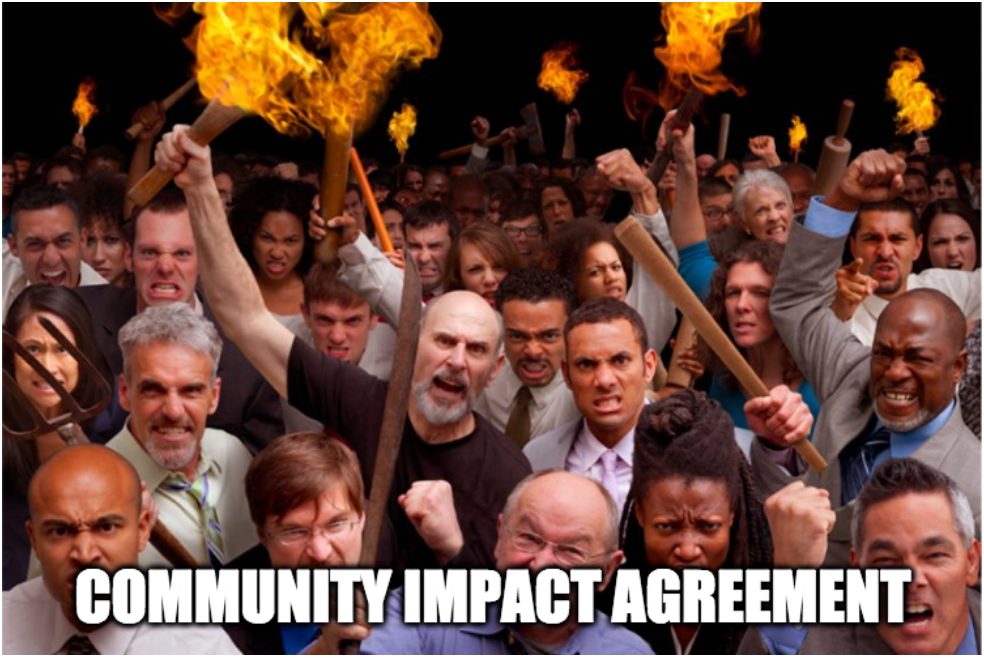Astroturfing is the practice of masking the sponsors of a message or organization (e.g., political, advertising, religious or public relations) to make it appear as though it originates from and is supported by grassroots participants. It is a practice intended to give the statements or organizations credibility by withholding information about the source's financial connection. The term astroturfing is derived from AstroTurf, a brand of synthetic carpeting designed to resemble natural grass, as a play on the word "grassroots". The implication behind the use of the term is that instead of a "true" or "natural" grassroots effort behind the activity in question, there is a "fake" or "artificial" appearance of support.
And now the federal government wants to get into the act and use your tax dollars to buy unaffected, fake "advocates" that are supposed to outweigh, outshout, and outrule your objections to the project on your land.
This rather long article says that up to 39 million acres are needed for new generation and transmission infrastructure in just 11 western states. Just 11 states, out of 50! It goes on to opine about how our government will attempt to take control of that much privately-owned land.
“Local community opposition is real and will likely continue to make siting and permitting a challenge,” but might be addressable, said University of Notre Dame Associate Professor of Sustainable Energy Policy Emily Grubert, who has worked with federal agencies on related issues.
To earn a community’s trust, development proposals “should explain why a project is needed, why the community’s resources are needed, and how the community can benefit,” Grubert said. They should also “assure the community its concerns have been heard and it will be protected,” she added.
DOE’s formal Community Benefits Agreements, which are used for new infrastructure development and stipulate the benefits a developer will deliver for the community, “could also have a powerful impact on streamlining siting and permitting,” Grubert said.
“No project should go ahead without a Community Benefit Agreement to assure real benefits for the host community,” agreed NRDC’s Greene. But in many places, “political polarization has turned reasonable project development questions into obstructive, misinformation campaigns,” Greene said. “Overcoming that will take a lot of work,” he added.
According to the DOE's Community Benefit Agreement (CBA) Toolkit, the federal government is getting involved in spreading propaganda and paying off certain "community" groups in exchange for their support of a project that only tangentially affects them but is hotly opposed in a community. What groups does DOE propose could negotiate these agreements?
neighborhood associations, faith-based organizations, unions, environmental groups and others representing the interests of a community that will be impacted by development(s).
Instead, DOE advises that communities should consider any threatening infrastructure project as an opportunity that requires the formation of an organization to take advantage of CBA payouts. There are no requirements that the signatories to CBAs actually have to sacrifice anything at all. Just be willing to advocate for an infrastructure project that is impacting another group or individual.
A CBA is an agreement signed by community benefit groups and a developer, identifying the community benefits a developer agrees to deliver, in return for community support of the project.
1. Research development proposals in their region to identify any that have the potential to offer benefits to the residents they will be operating near;
2. Organize a broad-based coalition of community interests and recruit stakeholder organizations;
3. Hold public meetings and maximize turnout with help from local leaders; and
4. Engage the developer with sustainable community objectives, via open dialogue as well as transparency.
Transmission developer astroturf groups have been spectacular flops over the years. At best, astroturf groups have amused intervenors and regulators alike with their clueless comments about how much we "need" this (or sometimes the wrong) project. At worst, astroturf groups have visited public scorn, boycotts, and flooded phone lines on community businesses who turn on their neighbors to become project advocates. Deployment of utility astroturf destroys trust and hurts communities, instead of helping them. Going back to that wordy Utility Dive article:
“People, especially in smaller communities, can get very passionate, and even exchange death threats, which shows how important and undervalued trust is,” Grubert agreed.
The bottom line is that this plan has never worked for utilities. It is quickly outed as a fake and the ones participating back slowly away in the face of community anger over their mutiny. Let's think for a moment about the kinds of entities who shall act at the "groups" that sign CBAs. Neighborhood associations have enough to do without spending time looking for "opportunities" to throw their neighbors under the bus. Faith-based organizations (aka churches, even if saying it is no longer politically correct for some reason) are not going to get involved in such a divisive community issue. Love thy neighbor, not stab him in the back. Unions don't live in the community. My experience with union advocates is that they ship in busloads of members from distant cities, hardly convincing for people who actually live there. Environmental groups... they're always looking for a free lunch, but again, not from your community.
This plan will never work. The ones actually impacted by the project aren't going to be distracted by a handful of colorful beads, and they aren't going to be intimidated by opportunistic sellouts.
Here's how the federal government *thinks* it's going to work:
[community] support would raise the probability of state or local government approvals for zoning variances, state permits, and other regulatory approvals.
Our federal government is engaging in taxpayer funded astroturf. Be on the lookout for opportunists in your own community!

 RSS Feed
RSS Feed